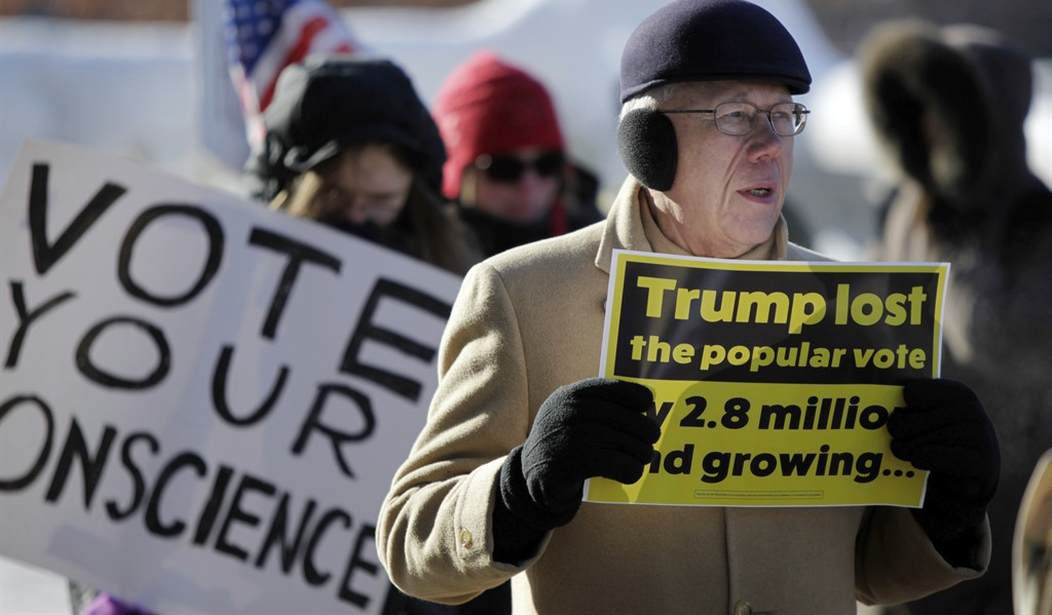In 2016 I learned not to sweat the polls. I still look at polls, of course. While they may not be perfect predictors of outcomes, they can, I believe, tell us about trends like the demographics of a candidate’s support and whether a race is tightening or becoming less competitive. There’s plenty of data to glean from polls even if the outcomes they predict are unreliable.
So, while I’m not worried about the outcome of the election, I’m mostly worried about the future of the Electoral College.
My expectation at this point, if Trump wins, is that he’ll keep Pennsylvania but lose Michigan and Arizona, narrowly winning the Electoral College with 278 electoral votes.
Here's my current election prediction via @270toWin https://t.co/HY0wz0cEO3 #2020election pic.twitter.com/HWd7zdLaiV
— Matt Margolis 🇺🇸 (@mattmargolis) October 7, 2020
Keep in mind, this map is the most pessimistic of my Trump-wins scenarios. Word is the Trump campaign is very confident about Arizona and Michigan. I am not so much, but obviously, I don’t know what the Trump campaign knows… and they certainly know more than I do. They knew it was worthwhile to keep resources in Pennsylvania and Michigan when I never even considered them as winnable.
Still, If this map pans out, and even if he manages to win Arizona and Michigan again (repeating the 2016 map with no gains) I strongly believe that Trump will once again achieve an Electoral College victory despite a deficit in the popular vote.
Believe me, as long as Trump wins, I’ll be happy, but as we saw after Trump’s victory in 2016, the unique way in which the United States elects its president came under vicious attack.
Fifteen states and Washington, D.C., have passed National Popular Vote bills. Five states signed these bills into law just in the past two years: Connecticut, Colorado, Delaware, New Mexico, and Oregon.
These fifteen states and DC represent 196 Electoral College votes, just over 72% of the Electoral College votes needed for the National Popular Vote Interstate Compact to go into effect. Should that happen, all of these states have agreed to award their Electoral College votes to the winner of the national popular vote—effectively destroying the Electoral College.
Should Trump, for a second time, win the presidency without a national popular vote majority, I fear the movement to abolish the Electoral College via the National Popular Vote Interstate Compact will, overnight, gain an unprecedented increase in support—support that could, in a very short time, give the movement momentum to succeed in getting enough states—with 270+ Electoral College votes—to sign on.
While such a scenario might seem unlikely now, consider that over the course of Barack Obama’s two terms, his party suffered a staggering loss of about 1,100 elected seats nationwide—that includes governorships and state legislatures. The incumbent president’s party often suffers losses during a second term, making the prospect of Democrat gains at the state level very likely.
The movement will persist regardless of the outcome of this election, that is for sure. Protecting the Electoral College must be a priority of the Republican Party after this election, regardless of the outcome.
_____
Matt Margolis is the author of the new book Airborne: How The Liberal Media Weaponized The Coronavirus Against Donald Trump, and the bestselling book The Worst President in History: The Legacy of Barack Obama. You can follow Matt on Twitter @MattMargolis










